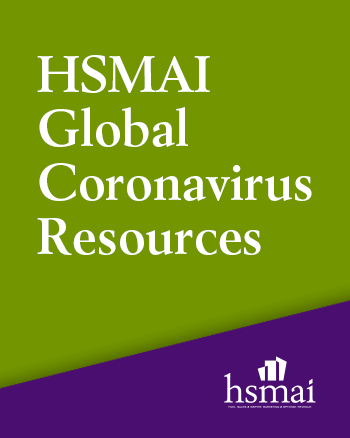 Darline Dondl is associate director of reporting for Marriott Vacations Worldwide, which is based in Orlando, Florida, and a member of the board of the HSMAI Central Florida Chapter’s Board of Directors. Her office transitioned to work from home, and she has been working reduced hours throughout the coronavirus pandemic. Dondl offers tips for revenue optimization specialists and other hospitality professionals who will be returning to work after COVID-19.
Darline Dondl is associate director of reporting for Marriott Vacations Worldwide, which is based in Orlando, Florida, and a member of the board of the HSMAI Central Florida Chapter’s Board of Directors. Her office transitioned to work from home, and she has been working reduced hours throughout the coronavirus pandemic. Dondl offers tips for revenue optimization specialists and other hospitality professionals who will be returning to work after COVID-19.
1. Apply what is relevant. With the myriad trends and data that have been shared for today’s changing landscape, it is important to find the nuggets that can be applied to your business. Approach the article or report as a way to broaden your perspective, then compare that information to the trends in your property and market. The data is changing at a rapid pace and is presented in multiple views that may not be helpful; be sure to focus your time on what will be impactful to your team.
2. Embrace what you learned. There has been new technology introduced, work-from-home etiquette, and revelations from training that we can take with us as we return to our routines. The times that we complained of too many meetings were replaced by cleared calendars. Were the virtual meetings more efficient than multiple emails? Was productivity changed by working from home, or impacted by more distractions? Did you have more of a routine to maximize your workday with adjusted hours? What were those key takeaways you had during a webinar that you intended to implement? Focus on the positive impact you can have on your new schedule.
3. Reevaluate your “normal.” We tend to get in a routine, so just like you do with a fresh start every new year, take this time to review your normal reports and see if they are still beneficial. Is there a new report that the team relied on to navigate during this time of abundant change and will it be useful moving forward, or can changes be captured, so it will be more comprehensive when reviewing trends? In order to capitalize on everyone’s time, make sure the reports that are being produced are being used — and ask for feedback, because they will tell you!
4. Balance of the year will be a new understanding for the industry. Flexible cancellations and delayed vacations have skewed the trends we have relied on to make our forecasts, but the data will continue to give us new markers in the trends. A deeper dive into the data will show us the change in our mix of business, the adjusted booking window, or the channel that is still producing strong. A little repetitive, but we can’t rely on the same reports — the trends may not be obvious — so changing the report filters to room type or channel can help the sales and marketing teams execute strategies that can be captured in the forecast revisions.
5. Budgeting for 2021 will present a unique challenge. Prepare for the need for more data than just “same time last year” or “prior year.” Understand the data that your revenue system or your property’s reports use, so when you’re developing a useful strategy there are no surprises or line items you have to continue to explain each time they’re reviewed. It may be more useful to build your strategy at an average of a few years until the markets return. Remember to adjust your corporate negotiated rates to align more closely with retail rate strategy that was most likely impacted. Collaboration with sales, marketing, and revenue teams will be essential to get everyone’s support for success and profitability.
For additional information, insights, and tools, visit HSMAI’s Global Coronavirus Resources page.
